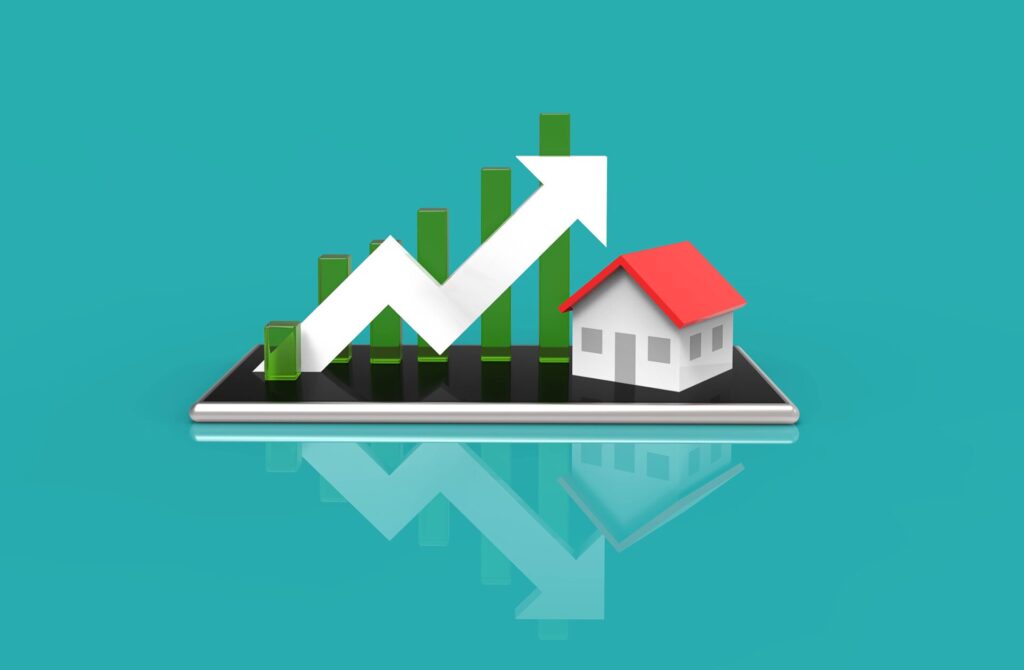The Impact of the Mortgage Collapse on the US Housing Market
The mortgage collapse in the US housing market is getting worse. Mortgage purchase applications have crashed by an unbelievable 41% year-over-year, down to the lowest level in 28 years.
In this article, we’ll take a closer look at the current state of the US housing market and the factors contributing to the mortgage collapse. We’ll also explore the potential impact of the mortgage collapse on the broader US economy and what steps policymakers and individuals can take to mitigate the fallout.
The Current State of the Housing Market
The housing market will be an absolute ghost town, with empty open houses and desperate sellers trying to cut prices. The January 2023 Realtors confidence survey shows that only 29% of home purchases last month were made in cash, indicating that the mortgage collapse is a huge problem for the US housing market. The more the inventory goes up, and buyers drop out of the market, the more pressure there will be for prices to decline. Mortgage rates are now going back up, which will bring down the typical house payment in America.
Read More: 2023 Real Estate Trends: What to Expect in the Housing Market
Arguments Against a Decrease in Housing Prices
Despite the worrying state of the US housing market, some argue that a decrease in housing prices is unlikely. One common argument is that inventory is low, so prices won’t go down. However, this argument may not hold up to scrutiny.
In reality, there are around 14 million vacant houses in the US housing market that are not currently for sale. This suggests that there is plenty of inventory ready to be released onto the market if sellers become more motivated to sell.
Moreover, inventory is already piling up in several states, such as Arizona, Idaho, Washington, Tennessee, and North Carolina. This excess inventory could pressure prices significantly, especially if more sellers enter the market.
The Economy and Recession

Looking at historical data on home sales in America going back to 1969, there have been four distinct peaks in home sales over the last 50 to 60 years. What’s interesting is that after each of the previous three peaks, a recession followed. From 1980 to 1982, there was a double-dip recession, in 1990-1991, there was the Gulf War recession; and from 2007 to 2009, there was the Great Financial Crisis. This historical pattern indicates that the collapse in home sales we’re seeing today is telling us that a recession is around the corner.
Historically, it takes about two years to go from peak home sales to the start of a recession, suggesting that we could start an official recession by the middle of 2023. If we do have a recession, which is a pretty high likelihood, it’s going to make all the metrics of the housing market look even worse. It’s going to suppress buyer demand even more, cause inventory to go up by more, and cause prices to go down. It’s also going to cause foreclosures to increase, which is something we haven’t seen much of yet.
Currently, the foreclosure rate is near an all-time low. However, that’s something that’s going to change very soon because data from the federal housing administration is showing that there’s been a big increase in the delinquency rate on FHA loans. Specifically, the 30-day delinquency rate over the last year has gone up from 3.8 percent to 5.6 percent. When you see that 30-day delinquency rate going up, it’s a sign that the foreclosure rate is going to start increasing in the near future.
All in all, the mortgage collapse and the housing market crisis have significant implications for the broader US economy, and it’s important to pay attention to the indicators and metrics that suggest a recession is on the horizon. Policymakers and individuals should take steps to mitigate the fallout from the mortgage collapse and make informed decisions about homeownership and financial planning.
Read More: The Best States to Retire in 2023
How to decide when to buy a house
A big metric to look at is the relationship between the cost of buying a house compared to the cost of renting. If the cost to buy is significantly above the cost to rent, it’s probably not a good time to buy. Some markets where it’s more expensive to buy than rent include Phoenix, Charlotte, and Los Angeles.
Housing markets are likely to be impacted the most

Some housing markets are likely to be impacted more than others as the mortgage collapse continues to play out. In Nashville, for example, inventory is already up 300 percent year over year, just as we’re walking into this mortgage collapse getting even worse. This is a housing market where buyers should be cautious about buying right now.
Similarly, in Dallas, inventory is up 200 percent year over year, and it’s expected to climb even further over the next six months as the mortgage collapse continues to play out. While some may believe that the housing market in Dallas is recovering, the reality is that the metrics suggest otherwise. This is a housing market where buyers should be wary.
Riverside, California, is another market where inventory is up 124 percent year over year. This is a place that’s no longer receiving an influx of homebuyers from LA and, thus, is going to have real issues going forward in 2023. Buyers should be cautious in this market, as well.
Overall, it’s important to pay attention to the housing markets where inventory is increasing rapidly, as these markets are likely to be the most impacted by the mortgage collapse. Buyers should carefully evaluate the metrics of the housing market and make informed decisions about buying or selling property.
Read More: The Importance of Having a Commercial Real Estate Exit Strategy
The US housing market is in trouble, and it won’t look like a good time to buy until home prices and mortgage rates go down significantly. With a recession on the horizon and foreclosures likely to increase, it’s important to pay attention to the metrics of the housing market and make informed decisions. It’s clear that the mortgage collapse is significantly impacting the US economy and housing market, and it remains to be seen how policymakers and individuals will respond to this crisis in the coming months and years.
Frequently Asked Questions (FAQs)
A: The mortgage collapse was primarily caused by a combination of factors, including lax lending standards, subprime mortgages, and a speculative housing bubble. These factors led to a surge in housing prices and increased demand for mortgages, even among borrowers who were not creditworthy. When the housing bubble burst and home prices began to decline, many homeowners found themselves underwater on their mortgages, unable to make their payments, and facing foreclosure.
A: The mortgage collapse can have significant ripple effects on the broader US economy. When home prices decline, and foreclosures increase, it can lead to a decline in consumer spending, job losses in the construction and real estate industries, and a tightening of credit markets. A recession may also follow, as historically, recessions have followed each of the previous three peaks in home sales over the last 50 to 60 years.
A: It depends on various factors, such as your financial situation, housing needs, and the housing market in your area. In general, if the cost to buy a house is significantly above the cost to rent, it’s probably not a good time to buy. It’s important to pay attention to the metrics of the housing market and make informed decisions.
A: Policymakers can implement policies to strengthen lending standards, regulate the housing and financial markets, and provide relief to homeowners facing foreclosure. Individuals can take steps to improve their creditworthiness, avoid predatory lending practices, and make informed decisions about homeownership. Ultimately, it will take a concerted effort from all stakeholders to mitigate the impact of the mortgage collapse on the US economy and housing market.
